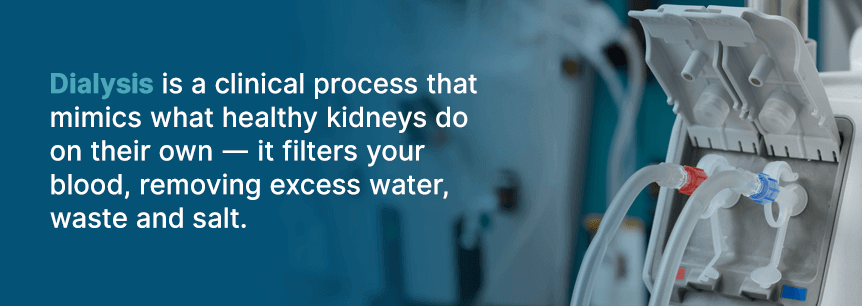
Your kidneys have an essential job. They act as a filter to remove excess water and wastes from your blood. Healthy kidneys filter out up to two quarts of waste products and excess water from your blood every day. What your kidneys remove from your blood gets discarded from your body in the form of urine. When kidneys become inflamed, this can disrupt their function, however. If you suffer from inflammation in your kidneys, you have nephritis.
Let’s look at a closer explanation of what nephritis is, how it is typically treated and how marijuana can be a great method of treatment to reduce inflammation and to provide other important benefits, including relief from the side effects of medications you take to manage your nephritis.
Nephritis is a general term that refers to inflammation of the kidneys. Your kidney contains nephrons, which are the units that filter your blood. You may hear people use the words nephritis and glomerulonephritis interchangeably since it is actually the glomeruli, tiny blood vessels inside of each nephron, that become inflamed in the majority of cases. When your nephrons become inflamed and swollen, your kidneys may not be as effective at removing waste out of your blood.
Several different medical issues can cause inflammation in the kidneys, primarily infections and autoimmune disorders. The two main types of nephritis are acute and chronic. Let’s take a closer look at these two types, and then we’ll also briefly look, more specifically, at lupus nephritis.
The acute form of nephritis tends to develop suddenly after you’ve experienced a severe infection. Some of these infections include strep throat, HIV and hepatitis. In some cases, nephritis may result from chronic conditions or rare disorders like granulomatosis with polyangiitis. If you experience acute nephritis, the issue may resolve itself on its own, but not necessarily. In some cases, it’s crucial to seek medical attention right away, or else you may end up with permanent kidney damage. In addition to acute glomerulonephritis, another type of acute nephritis is interstitial nephritis, which affects the spaces between the kidney tubules.
Like acute nephritis, chronic nephritis can develop after you experience a sudden disease. Unlike acute nephritis, however, the chronic form can develop slowly and subtly. It’s especially dangerous because you may not experience noticeable symptoms to let you know you’re experiencing nephritis until it’s more advanced. All the while, your kidneys can suffer severe damage. In many cases, sadly, this form results in complete kidney failure.

Another form of nephritis worth mentioning here is lupus nephritis. Lupus is an autoimmune disease. That means your immune system, which defends against threats to your health, erroneously attacks healthy tissue in your body. More than half of all people who have lupus end up developing lupus nephritis because their immune system targets their kidneys.
With acute nephritis, you tend to experience symptoms right away. These include:
If you have chronic nephritis, you may not experience any symptoms at first. Early signs to look for include:
If you experience kidney failure, you may have to deal with some of these symptoms:
It is difficult to know precisely how many people suffer from nephritis since acute cases often resolve themselves without any medical intervention. However, chronic cases of nephritis can often lead to more severe problems, such as kidney failure. Here are a few statistics to illustrate the seriousness of kidney inflammation and failure in the U.S. today:

Since nephritis results from other problems, like infections and chronic conditions, treatment usually focuses mainly on addressing the underlying cause. Unfortunately, some causes, like lupus, are not curable conditions. In these cases, treatment focuses on minimizing damage and helping patients cope with the symptoms of their disorder.
Here are a few common ways medical professionals might treat nephritis:
If you have an infection that is causing your nephritis, taking antibiotics either orally or intravenously can help clear it up. If you have an infection that’s causing you pain, you may also take over-the-counter or prescription painkillers.
In the case of autoimmune disorders, a doctor may prescribe medication aimed at suppressing the immune system, so it doesn’t attack the kidneys. The side effects you experience largely depend on which drug your doctor prescribes, but in all cases, since these drugs weaken your immune system, a major side effect is that you’re more at risk for getting infections.
Steroids can also reduce inflammation. Steroids come with a long list of side effects, including acne, swelling from fluid retention, insomnia, weight gain, mood swings, headaches, increased hair growth, and high blood pressure.
If your nephritis is causing high blood pressure, also known as hypertension, a doctor may prescribe diuretics, also known as water pills. In addition to helping control blood pressure, these pills can also help reduce swelling. Side effects include excessive urination, dizziness, muscle cramps, headache, and fatigue.
There are some ways you can potentially lessen the effects of nephritis through lifestyle and dietary changes. Some of these ways include:
Dialysis is a clinical process that mimics what healthy kidneys do on their own — it filters your blood, removing excess water, waste, and salt. This process becomes necessary when patients begin to experience kidney failure. Dialysis can be a temporary solution in cases of acute nephritis but is more common in cases of chronic nephritis as an ongoing solution to the problem as long as the patient remains living. On average, the life expectancy for a person on dialysis is five to 10 years.

Another option, if your kidneys are failing, is to have a kidney transplant. Since you can live with just one functioning kidney, in some cases, close friends or family members may choose to donate one of their healthy kidneys to help their loved one. Your doctors can also put your name on a waiting list to receive a kidney from a donor. Since your body, if left to its own devices, is not inclined to accept this new kidney, you’ll have to take certain medications for the rest of your life.
Society has long valued marijuana for its medicinal properties, but clinical research on the potential uses of marijuana as a form of medical treatment is limited. That is primarily due to social stigmas and concerns related to the “high” effect tetrahydrocannabinol (THC), a compound in cannabis, typically has on users. Fortunately, in recent years, research on marijuana’s medical potential has begun to expand.
Especially relevant to nephritis are the findings of recent research that indicate what many patients have already experienced firsthand: Marijuana has a great deal of potential as an anti-inflammatory and as an immunosuppressant. These two qualities go hand in hand since your immune system causes inflammation. Cannabis affects your body because the cannabinoids in marijuana interact with your endocannabinoid system.

In 2009, a team of researchers looked at previous research on marijuana’s effect on the immune system and on inflammation to explore its potential to help treat inflammatory and autoimmune diseases. The study found many cannabinoid receptors in the immune system, indicating the potential for marijuana to interact with and affect a person’s immune system. Previous research confirmed THC had an immunosuppressive effect on mice. Researchers also found increasing specific endocannabinoids led to immunosuppression and healing from immune-mediated injury to organs.
In 2010, an article in the European Journal of Immunology further confirmed the value of cannabis as an immunosuppressive drug. These researchers singled out a recently discovered type of immune cell, called myeloid-derived suppressor cells (MDSCs). Unlike other immune cells, these cells suppress your immune system. The research showed cannabinoids could activate cannabinoid receptors to cause a significant increase in MDSCs, directly pointing out the implications for marijuana’s use as an immunosuppressive drug.
In 2015, researchers conducted a review of research that concluded cannabinoids that bind to cannabinoid receptors in the immune system have an immunosuppressive effect. The study explicitly pointed out the clear implications that marijuana could be extremely beneficial in cases where patients need to hold their immune system in check.
While the research on marijuana’s potential to effectively treat inflammatory and immune problems in the body is ongoing, there is also a history of research and experience to indicate that marijuana for nephritis is an effective way of alleviating symptoms you may be experiencing.
In some cases, the symptoms you want relief from may be side effects from a medication you’re taking for your condition. If you’re on steroids, marijuana can help with many side effects. It can help you sleep better at night, calm your mood and provide relief from headaches. If you’re taking water pills, marijuana can ease muscle cramps and can energize you when you feel fatigued.
For people who experience kidney failure, marijuana can serve to alleviate some of the uncomfortable symptoms you may deal with. Cannabis is known to stimulate appetite, prevent nausea, make you feel more energized and relieve painful muscle cramps, which all directly combat symptoms of kidney failure. When someone is dealing with a serious condition like kidney failure or a chronic illness like lupus, marijuana can also help combat feelings of anxiety or depression.
Since we looked at side effects for conventional treatment methods, let’s also consider the possible side effects of medical marijuana. The good news is that, in appropriate doses, weed has very few potentially harmful side effects. Some people may consider a side effect negative or not depending on their lifestyle and the feelings they hope to experience by using marijuana. Some side effects to consider are:
Though not significant for most patients, patients who have dangerously high blood pressure should also consider the fact that marijuana can cause blood pressure and heart rate to increase after consumption.
An important aspect of marijuana to note is that it can have a different effect on you depending on which strain you use. If you want to minimize the psychoactive effects of marijuana, try a strain that is lower in THC. Here are a few specific strains that are known to help with some of the symptoms you may be experiencing.
There are a variety of ways to administer marijuana. The method that’s best for you depends on a few factors.

One primary consideration is whether you want to feel the effects of marijuana more subtly over a long time, or would like to experience it in full for a shorter period.
If you suffer from nephritis, marijuana can help. If you’re interested in seeing for yourself how marijuana can reduce your inflammation and relieve symptoms and side effects you’re dealing with, start by searching for a medical marijuana doctor or a dispensary near you. At MarijuanaDoctors.com, we make sure all our marijuana doctors have the proper experience and licensure. Meeting with a doctor is an excellent way to discuss your specific needs and to determine whether medical cannabis may be something you should try. Medical marijuana patients across the nation are experiencing the many ways marijuana can provide safe, natural healing and relief.
Find A Doctor Find A Dispensary